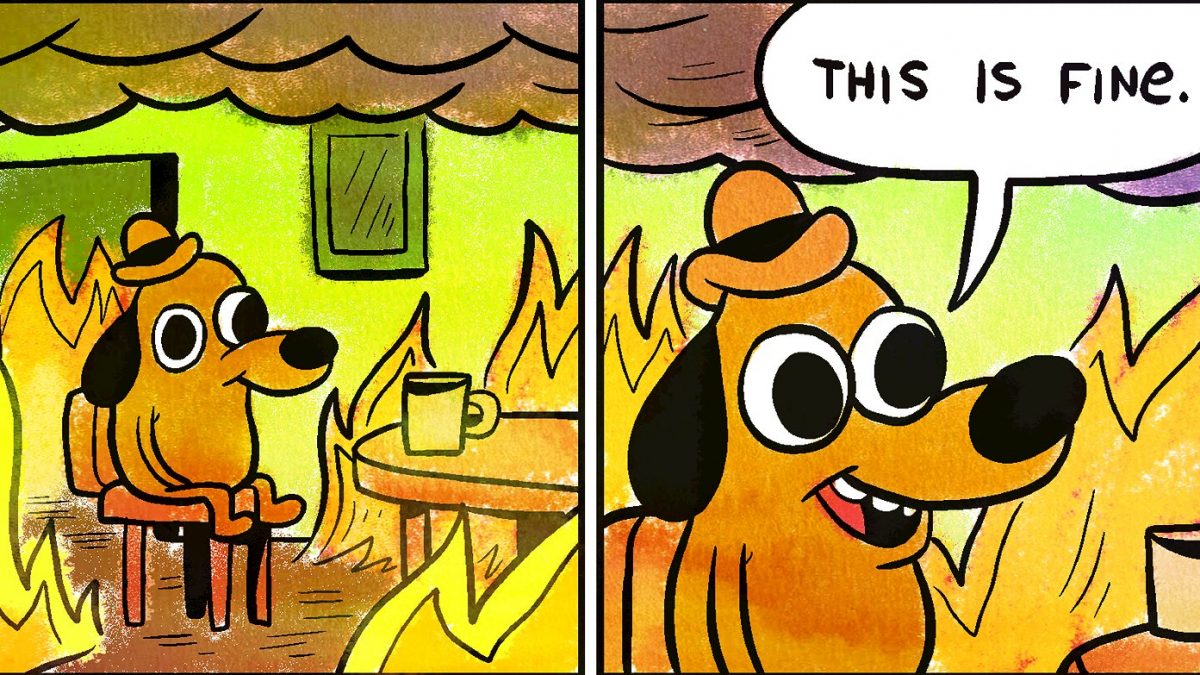The Opening of the Academic Year (or OAY, if you’re in the know) ceremony took place on September 5th, a yearly ritual where the biggest fish in Wageningen get together, shake hands, and discuss the weather.
The first OAY for our new CEO, Sjoukje Heimovaara, comes in the midst of very obvious climate change-induced weather conditions in the Netherlands. What was her take on the university’s role in shaping our present and future?
Bag security check, name tags, new shiny Omnia, and a bunch of white people in weird black outfits: the Opening of the Academic Year has begun!
We start with the most eagerly awaited speech: Sjoukje Heimovaara is in the room! She doesn’t beat around the bush: impending doom is here. Planetary boundaries are a thing. “We cannot cross these lines with impunity” – alright! So what do we do now?
Lo and behold: nothing out of the ordinary. Her discourse is, in fact, no different to Louise Fresco’s: business as usual, efficient ways of using nature, new technologies, and green transitions.
There is a sense of urgency, but also of “optimism towards the resilience of our planet and of humans.”
Newsflash: optimism won’t change a thing! Turns out optimism alone can easily breed complacency and inaction.
After Sjoukje’s opening speech, Hannah van Zanten introduced her research on holistic circular food systems and once again presented us with a cheerful, optimistic, cartoonish version of the facts.
Martin Scheffer, a cool, eminent professor, gave a poetic speech that featured perfectly curated audiovisual material. It all seemed very promising.
He started with “there’s too much bullshit, too much greenwashing, we need real change and fast – is it possible?”.
I was hooked.
Yet by the end of his speech I had no clue whether change was possible or not. What had he said?
Small steps lead to big change. Students bring us hope. We need to be change makers, not change blockers. Empty words devoid of any actual meaning. 12/10 for aesthetics, but that was it for Martin.
The third speaker was Jessica Duncan, who presented the most critical and seemingly radical version of the facts: the same logic and processes that got us into this mess cannot help us out of it. Get ‘em, queen!
Her take: we need plurality, disagreement, and defragmentation of governance to reach “transformative change”.
She introduces the Centre for Unusual Collaborations with direct reference to Donna Haraway’s Staying with the Trouble and an invitation to do more “tentacular thinking”.
That’s where this humble Jester fell deeply into admiration with Jessica Duncan (but honestly, exposing my bias here, I was already familiar with her research and, woof, she can literally do no wrong in my eyes, change my mind).
Special mention to our main man Arthur Mol, coming in in the last 5 minutes to have a laugh, literally just vibe, and close the ceremony. His last words?
“Good luck fighting all the crises”
What a legend.
All in all, this OAY heavily featured the concepts of resilience, optimism, and hope for the future. In fact, a little bird told us that the speakers were urged to give an optimistic presentation – c’mon party poopers, let’s turn this eco-anxious frown upside down!
I guess that’s ironic, since the word “crisis” was also mentioned several times. In fact, several crises were mentioned: climate crisis, nitrogen crisis, biodiversity crisis, water scarcity crisis, you name it.
Firstly, doesn’t tackling a crisis require quick, radical action?Secondly, aren’t these just consequences of one big crisis, and that is the relentless push of a capitalist system that maximizes efficiency and profit at the expense of natural resources and social welfare? And isn’t this university playing a huge role in enabling this system in maintaining its growth-obsessed hegemony?
Before I drown you in my cynicism, I do want to point out something that sparked my interest. From Sjoukje’s: “Why did I get into such a gloomy topic? Because I care”.
Or in cool-older-cousin Jessica Duncan’s words:
“We care, and that’s where hope lies”.
I find it refreshing to explicitly mention the concept of care as an engine for change. New ways of relating to the planet and to fellow humans – based on care – seem to be needed to detach ourselves from the capitalist machinery governing our lives.
Dare I say that ethics and politics of care can be a radical act of resistance? Leave a comment below if you agree xoxo.
So here’s my closing paragraph: I had high hopes for Sjoukje; that she’d be willing to acknowledge the urgency of our situation and act accordingly, willing to use her newly acquired power to kickstart change, to be radical, ready to shake things up.
Did this happen? Not at all. Should I be surprised? Of course not. Once again when it comes to WUR, I’m disappointed, but not surprised.
Want to check the speeches yourself? Click here.

